1. Move Naturally All Day Long
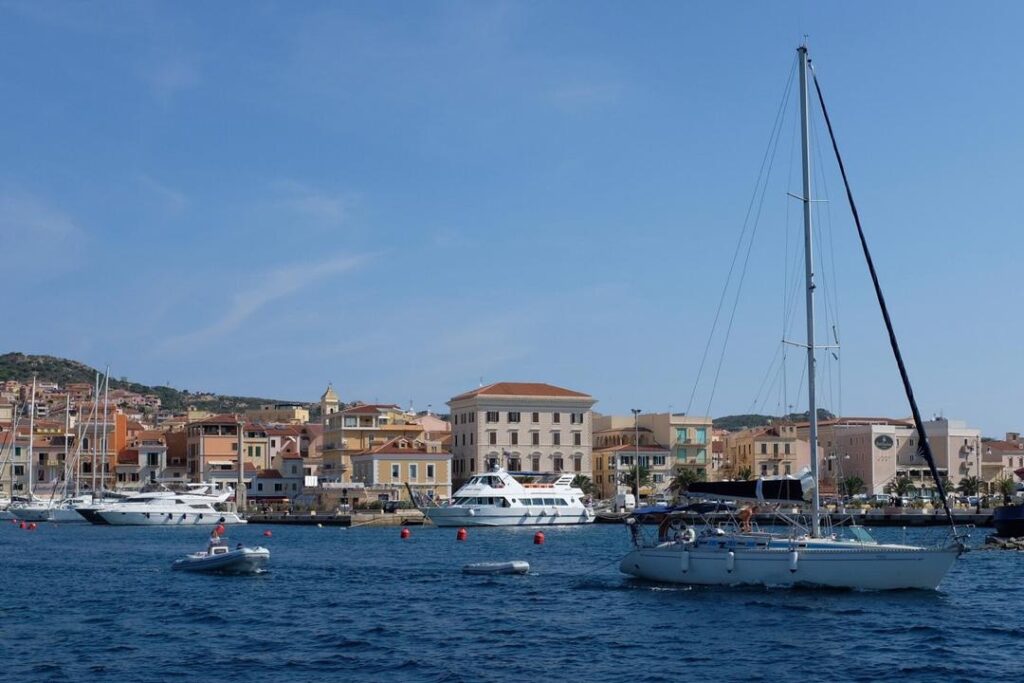
Blue Zone residents don’t rely on intense gym workouts; instead, their environments are set up to encourage constant, low-intensity movement. This means their daily lives naturally include activities like walking to the market, tending to a garden, and performing household chores without modern, labor-saving devices. This non-negotiable, consistent physical activity, integrated seamlessly throughout the day, is linked to lower rates of chronic disease and better overall physical and mental health than sporadic, intense exercise sessions.
2. Know Your Life’s Purpose
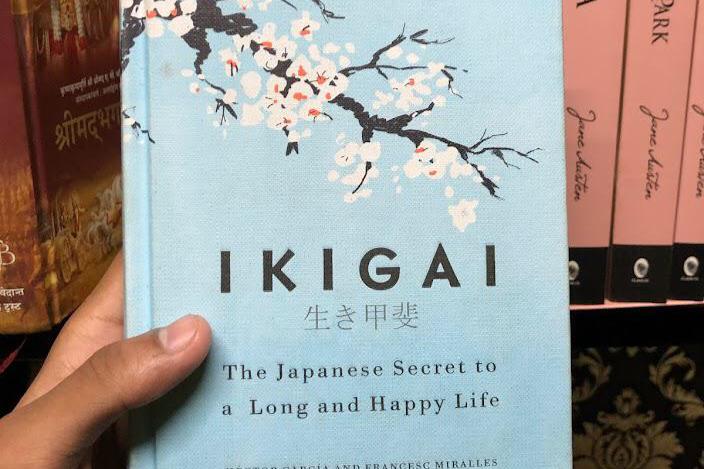
Having a clear sense of purpose, what Okinawans call ikigai and Nicoyans call plan de vida, is a central pillar of longevity in these regions. This isn’t just about career goals; it is a deep, intrinsic motivation, a reason to wake up in the morning. Research suggests that knowing your purpose is linked to a 15% lower risk of dying prematurely, as it encourages healthier lifestyle choices and provides a psychological buffer against the stresses of aging and daily life.
3. Down Shift to Manage Stress

Stress is universal, but Blue Zone centenarians have specific, daily rituals to shed it before it turns into chronic inflammation. For Adventists in Loma Linda, this might be prayer; for Ikarians, a short afternoon nap; and for Sardinians, a daily glass of red wine with friends. These simple ‘down shifts’ are non-negotiable breaks that prevent stress hormones from accumulating, protecting the body from age-accelerating damage and contributing to their remarkable health span.
4. Practice the 80% Rule
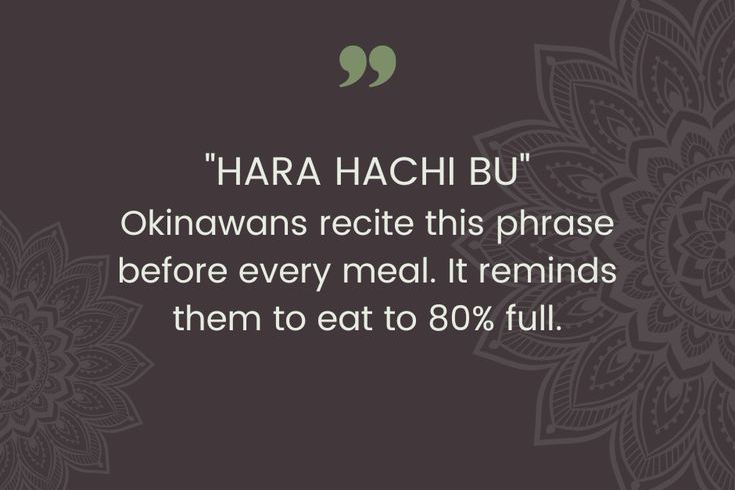
The Okinawans have a 2,500-year-old Confucian mantra called Hara Hachi Bu, which reminds them to stop eating when their stomach is 80% full. This simple practice of mindful moderation naturally results in lower calorie intake over a lifetime, which is scientifically linked to lower body weight and improved metabolic health. By consistently stopping short of complete fullness, residents prevent the over-stretching of the stomach and the potential for weight gain often associated with modern Western diets.
5. Prioritize a Plant Slant Diet
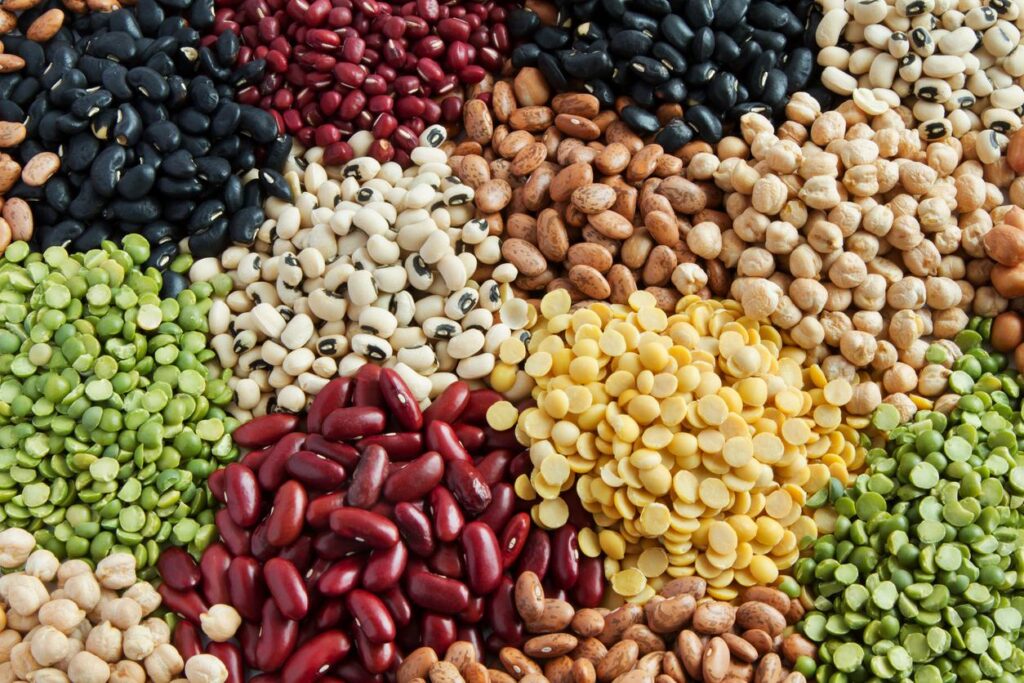
The cornerstone of the Blue Zone diet is legumes, beans, lentils, and peas, making up the majority of their daily caloric and protein intake. While some eat small portions of meat (mostly pork) rarely, perhaps only five times per month, the bulk of their meals are rich in fresh, local vegetables, whole grains, and nuts. This plant-heavy diet provides high levels of fiber, antioxidants, and essential micronutrients, drastically reducing the risk of heart disease, cancer, and type 2 diabetes.
6. Enjoy Wine at Five (Moderately)
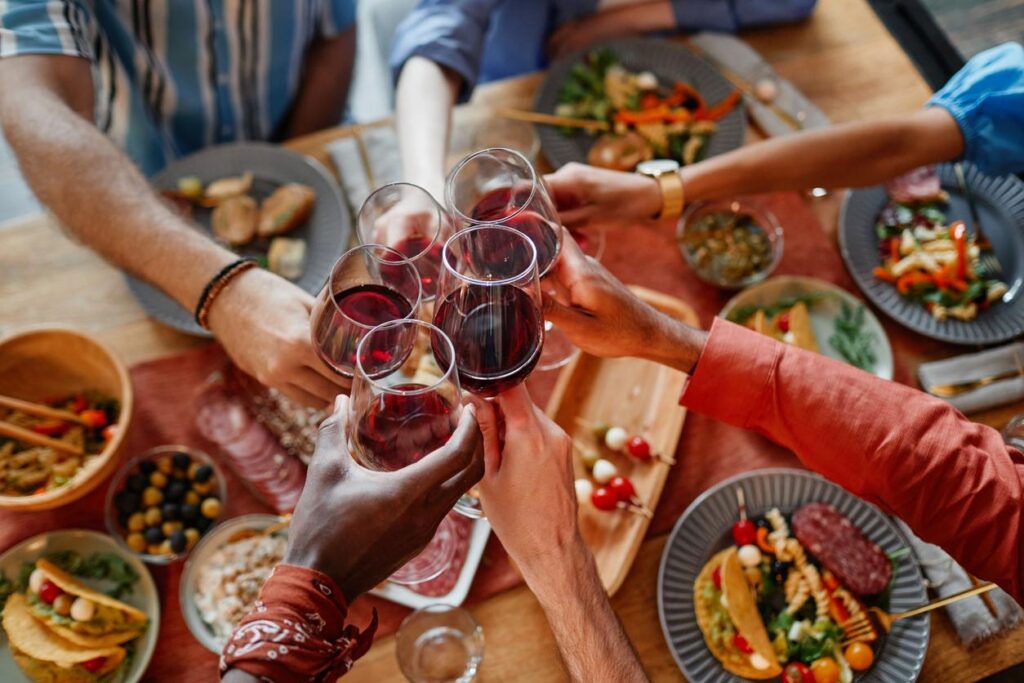
People in all Blue Zones, except the Seventh-day Adventists, consume alcohol moderately and regularly, often enjoying one to two glasses of red wine daily, typically with friends and/or food. The Sardinians, in particular, favor a local red wine called Cannonau, which is exceptionally high in beneficial antioxidant compounds called flavonoids. The key is moderation, no more than two small glasses a day, and consumption as part of a social or culinary ritual, not a standalone habit.
7. Belong to a Faith Community
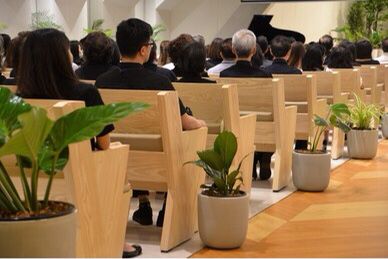
The vast majority of centenarians in Blue Zones belong to a faith-based community, regardless of denomination. Research from the Adventist Health Study shows that individuals who regularly attend a faith-based service live an average of four to 14 years longer than their non-attending counterparts. This benefit comes not just from the spiritual practice itself, but from the sense of belonging, social support, and shared positive outlook that a faith community inherently provides.
8. Put Loved Ones First

Successful centenarians in Blue Zones place an intense priority on family. This means caring for aging parents and grandparents in or near the home, which has been shown to lower disease and mortality rates for both the elders and the children in the household. Additionally, committing to a life partner is a common trait, as is investing time and love into their children. These strong familial bonds create a supportive, low-stress environment that extends lifespan and health.
9. Curate the Right Tribe

The long-lived people of the Blue Zones chose, or were born into, social circles that actively support healthy behaviors. The Okinawans, for example, create Moai, groups of five friends who commit to each other for life, offering financial and emotional support. Because health behaviors like smoking, obesity, happiness, and even loneliness are contagious, surrounding yourself with people who practice healthy habits is a powerful, unconscious driver of longevity.
10. Eat the Smallest Meal at Dinner

In every Blue Zone, the centenarians follow a clear caloric pattern: they eat their largest meal in the morning or early afternoon, and their smallest, lightest meal in the late afternoon or early evening. Following their small dinner, they often fast until breakfast the next morning. This practice allows for a beneficial rest period for the digestive system and ensures the body is not burdened with the task of digesting heavy food close to bedtime, promoting better sleep and metabolic health.
11. Walk to Complete Errands
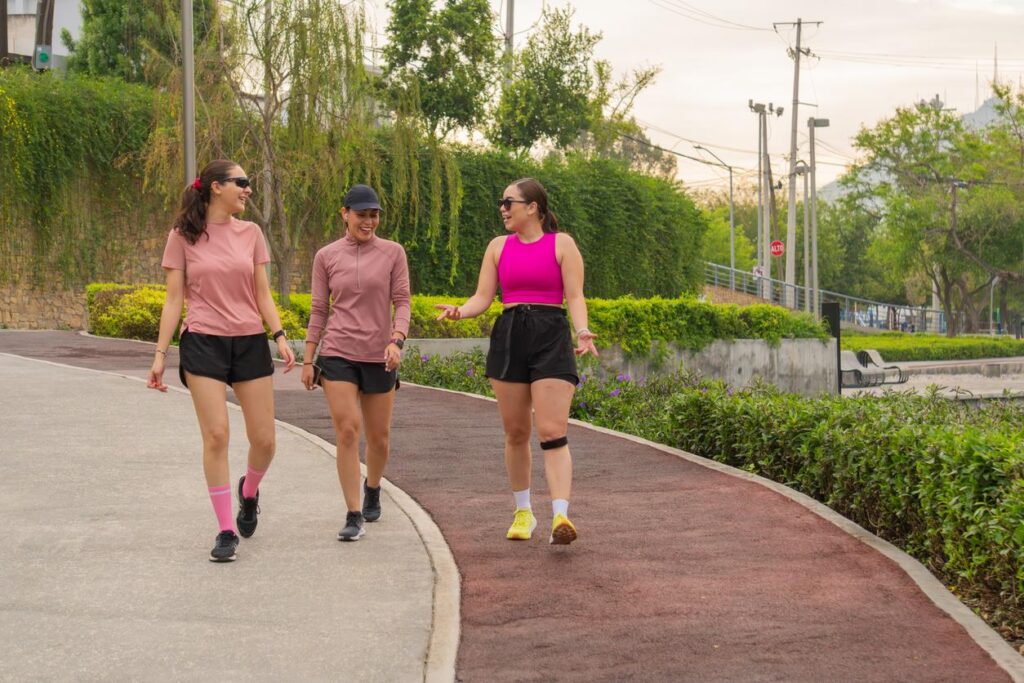
In the Blue Zones, daily life is designed to minimize sitting and maximize walking. Residents live in communities where they walk to the market, to visit friends, or to work, rather than driving. This habitual, short-distance walking burns a significant number of calories throughout the day without the need for formalized exercise. It also connects them with their community and environment, reinforcing social ties and a sense of place.
12. Grow and Tend a Garden
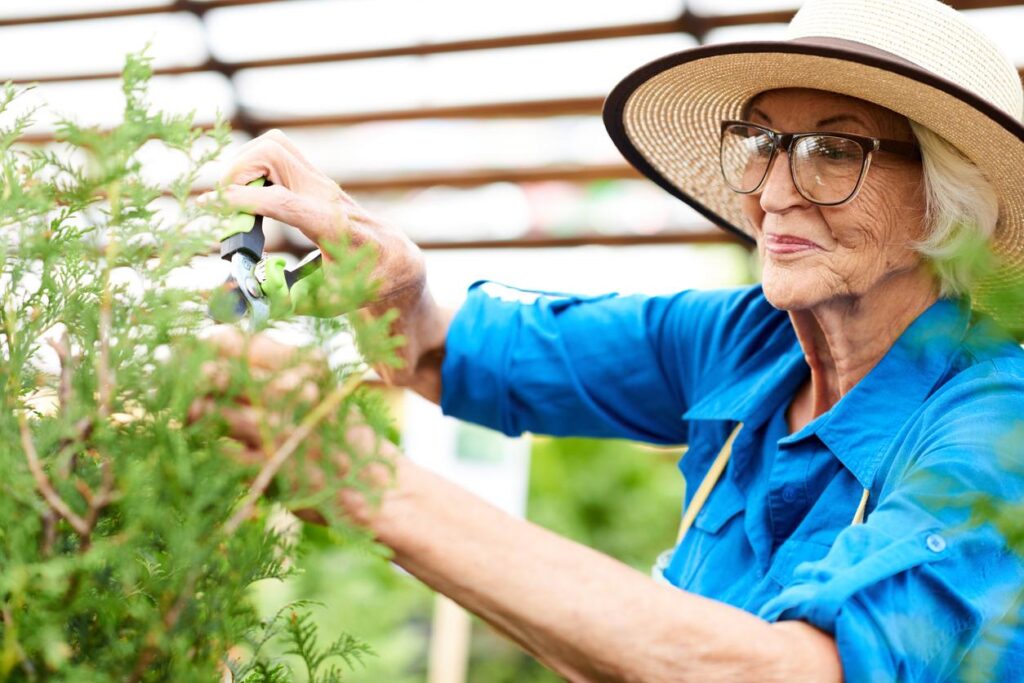
Gardening is a near-universal practice among Blue Zone elders, serving multiple longevity purposes at once. It forces them into constant, gentle physical activity, squatting, bending, and lifting, while exposing them to healthy microbes in the soil. Furthermore, it provides them with an immediate source of fresh, antioxidant-rich, local produce, and a daily purpose for waking up, directly linking their efforts to a tangible, nutritional reward.
13. Consume Beans Daily
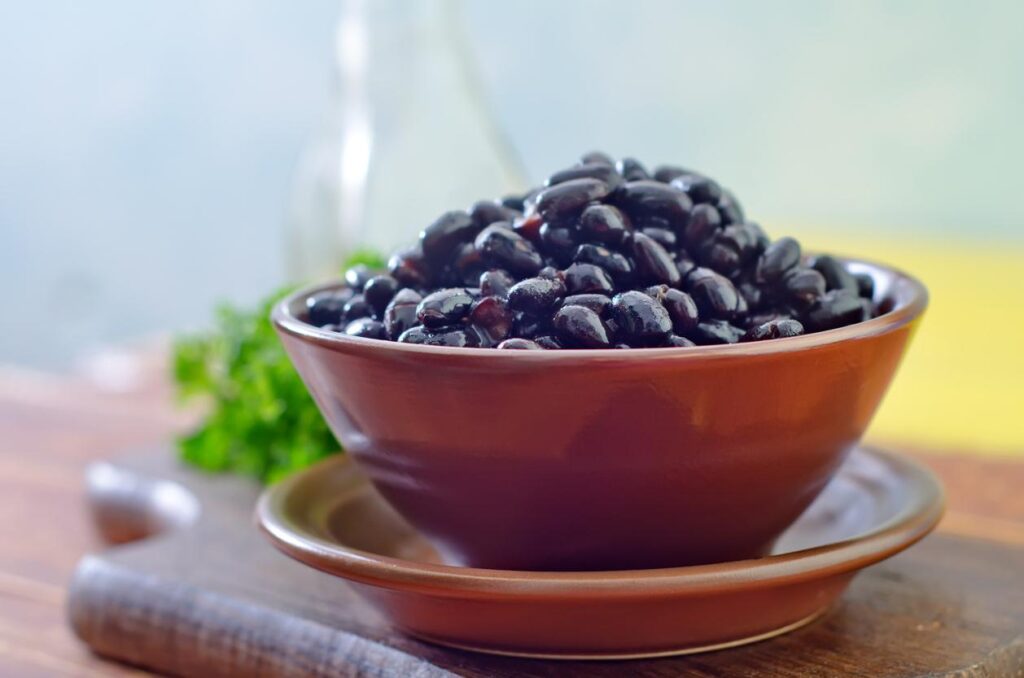
Beans and legumes, including black beans, chickpeas, lentils, and fava beans, are the absolute dietary bedrock of all five Blue Zones. They are consumed daily and make up the major protein source, replacing high-fat meat and dairy. Rich in fiber, protein, and essential micronutrients like folate and iron, the daily consumption of beans significantly lowers cholesterol, regulates blood sugar, and is a key driver in preventing chronic heart and metabolic diseases.
14. Drink Water from Natural Sources
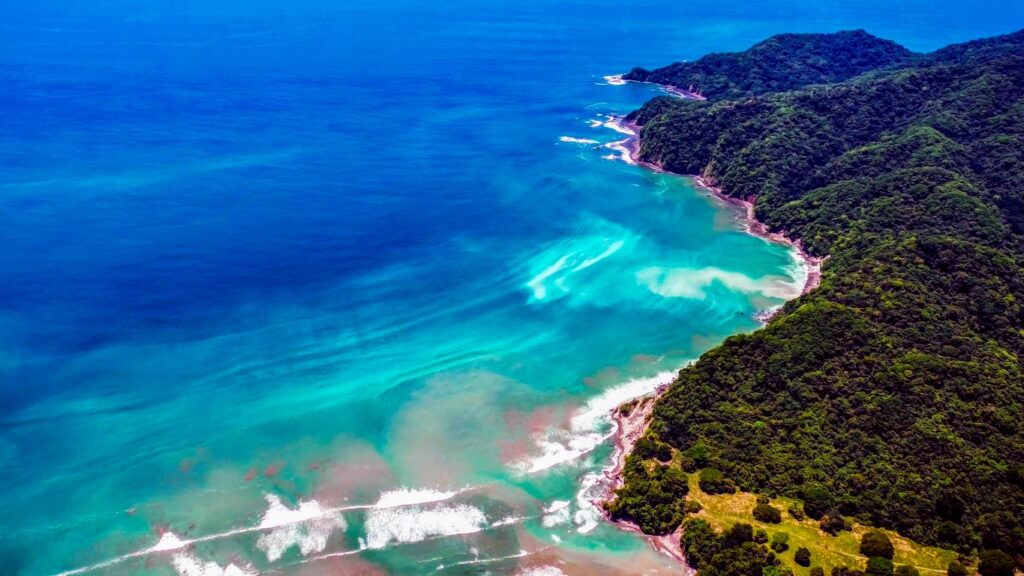
In regions like the Nicoya Peninsula in Costa Rica, the local water is naturally rich in calcium and magnesium, two minerals vital for bone and muscle health. While this unique factor is geographic, the general habit to adopt is consuming clean, mineral-rich water and prioritizing it over sugary drinks. Staying consistently hydrated aids in digestion, energy levels, and kidney function, all of which contribute to a higher quality of life in old age.
15. Make Time for a Daily Nap

For residents in Ikaria, Greece, and Sardinia, Italy, a short, mid-day nap is a common, non-negotiable ritual. Studies have shown that regular napping is associated with a lower risk of heart disease, likely because it serves as an effective ‘down shift’ to reduce stress and blood pressure. These naps are typically brief, a power nap rather than a deep, long sleep, allowing them to reset and maintain alertness for the rest of the day.
16. Incorporate Fermented Foods
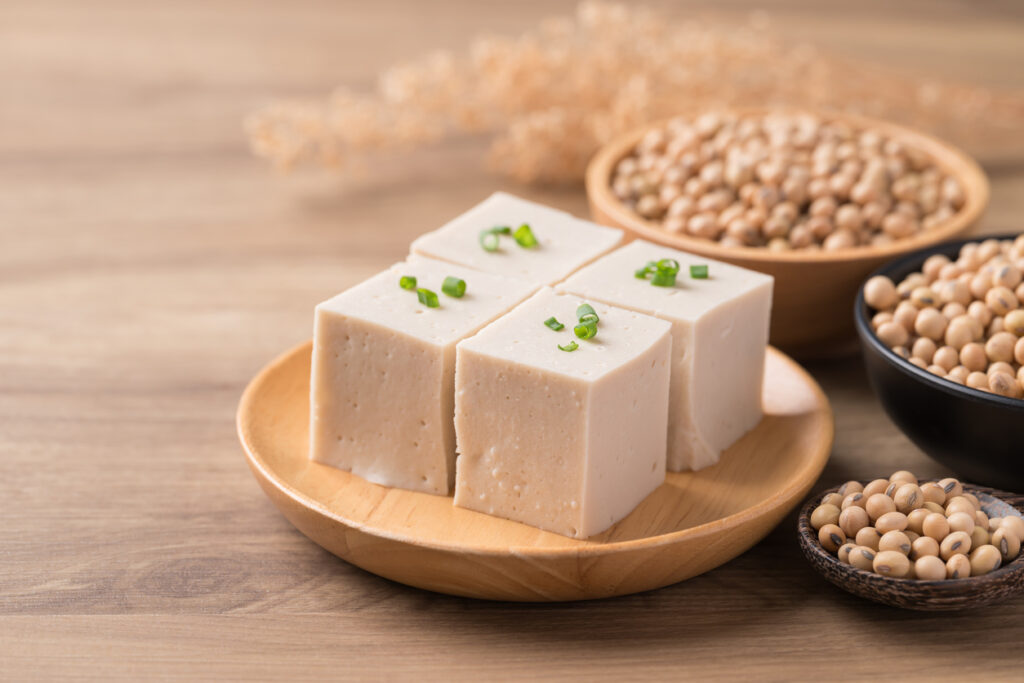
The diets in several Blue Zones include traditional fermented foods, such as sourdough bread (Sardinia), sour dough goat and sheep’s milk cheese (Sardinia and Ikaria), and soy-based products like miso and tofu (Okinawa). These foods are natural sources of probiotics, beneficial bacteria that support a healthy gut microbiome. A robust and diverse gut flora is increasingly linked by research to stronger immunity, better mood, and reduced systemic inflammation.
17. Cherish and Honor Elders

A core cultural value in Blue Zones is the deep respect and high social status afforded to elderly members of the community. They are not marginalized but are integral, active participants in daily family life, acting as important sources of wisdom and guidance. This cultural framework ensures that elders feel needed and valued, which reinforces their sense of purpose and is a powerful factor in maintaining cognitive function and overall mental well-being into advanced age.
18. Avoid Processed Sugar

Blue Zone diets are consistently very low in added or processed sugar, with sweetness usually derived naturally from fruit. For example, Okinawans traditionally consumed very little sugar, a factor that is key to their low rate of diabetes and heart disease. Avoiding the high consumption of refined sugars common in Western diets helps to maintain healthy insulin levels and prevent the chronic inflammation that accelerates the aging process.
19. Prioritize Quality Over Quantity Sleep

While the exact hours may vary, Blue Zone residents generally listen to their bodies and get sufficient, restorative sleep. They are less driven by rigid work schedules and more attuned to natural daylight cycles. In Ikaria and Sardinia, the routine of napping suggests that getting proper rest isn’t about one long block of time, but about respecting the body’s need for recovery, which strengthens the immune system and reduces stress.
20. Cultivate an Attitude of Gratitude

While less directly measurable than diet or movement, a consistently positive outlook and an expressed attitude of gratitude are common threads. In Nicoya, Costa Rica, elders often refer to their ‘plan de vida’ with a deep appreciation for their life and family. This mindset of thankfulness and contentment contributes to lower stress levels and a greater capacity to cope with life’s inevitable hardships, fostering mental resilience.
21. Use Olive Oil as the Main Fat Source
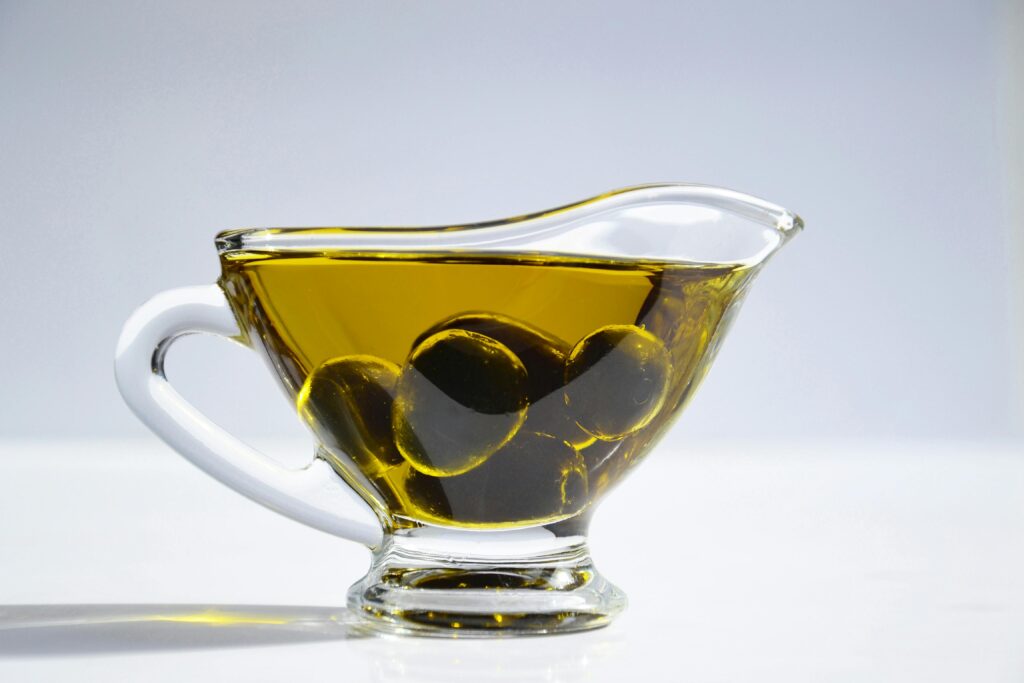
In the Mediterranean Blue Zones of Sardinia and Ikaria, high-quality extra virgin olive oil is the primary source of dietary fat. It is rich in monounsaturated fats and polyphenols, powerful antioxidants that are highly protective against heart disease and stroke. Consumed daily, often drizzled raw over salads, vegetables, and bread, this habit provides consistent, healthy, anti-inflammatory fats, replacing less healthy saturated and trans fats.
Adopting these habits doesn’t require a move across the globe, but rather a shift in our daily routine and perspective. The Blue Zones teach us that a long, vibrant life is not an accident, but the natural outcome of a life lived with purpose, connection, consistent gentle movement, and a nourishing, plant-rich diet. These small, sustainable changes can profoundly reshape your health trajectory, making longevity an attainable goal.
This story 21 Habits That Help Blue Zone Residents Live Longer was first published on Daily FETCH


